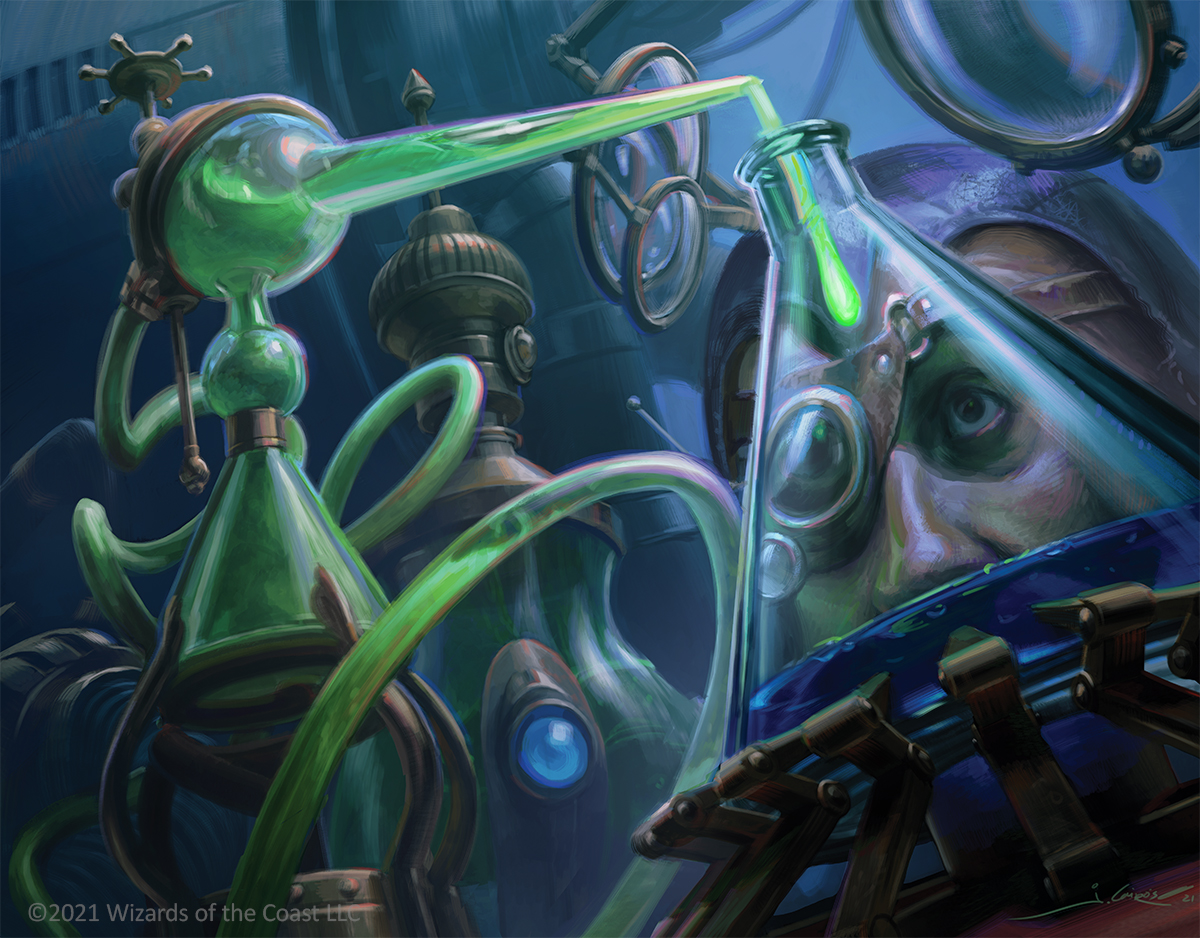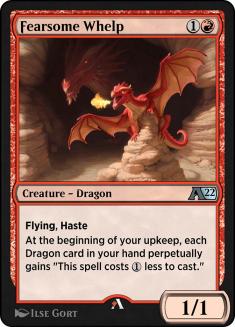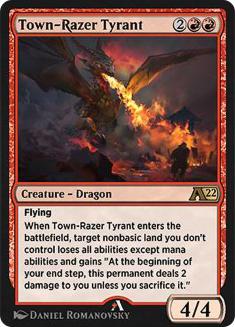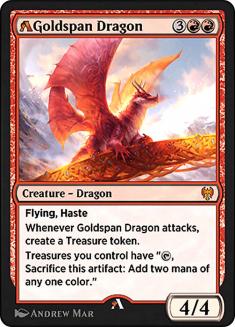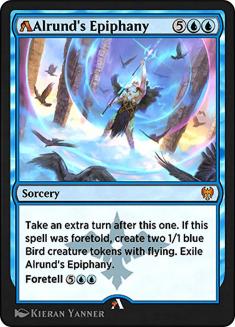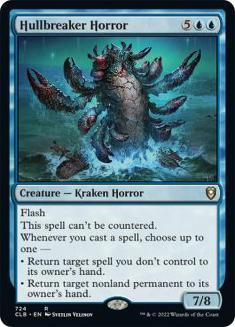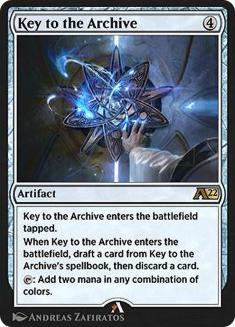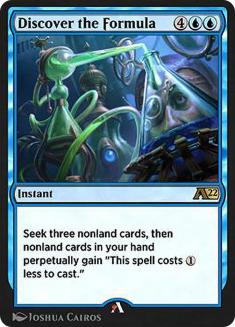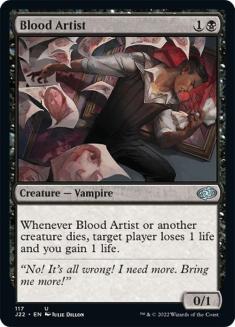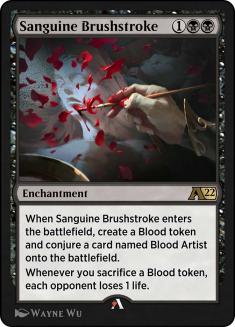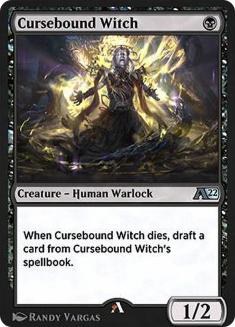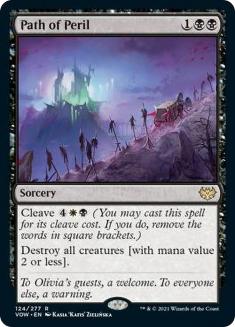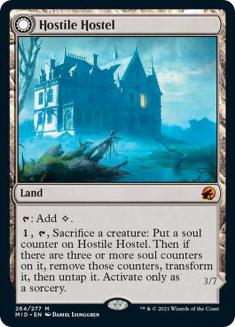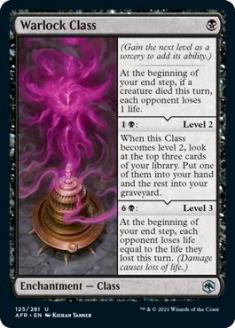Alchemy is here and, despite my initial reservations, is actually a lot of fun. As someone who has played a ton of different games over my lifetime, powerful spells and mechanics don’t scare me. Digital-only mechanics are what troubled me when Alchemy was first announced, simply because they would be impossible to replicate in real life. I believe that Magic draws its strength from live play, and having an online-only format eclipse an IRL format felt dangerous.
Luckily, Standard sucks and no one plays it in real life, so my fears of it being a problem have already dissipated. If MTG Arena becomes a place where banning a card is replaced by nerfing a card, but Modern and older formats can still play with non-nerfed versions, that is a small price to pay. Alchemy for balance, Modern for purity.
With the release of Alchemy: Innistrad come both rebalanced cards and new releases. Today’s article will discuss three decks I’ve been working on, how they utilize new cards, and how the nerfs have affected some of our old favorites. These decks will try to stress-test the nerfed cards, as well as push the new ones to their limit. Without further ado, let’s take our first dive into Alchemy on Magic Arena!
Rakdos Dragons
Dragons, as an archetype, has been around for a very long time. Dragons decks are traditionally midrange builds that put an emphasis on early defensive spells so that their hard-hitting four- and five-mana creatures can get the job done without much pushback. The Dragons themselves often kill creatures or are tough to deal with via traditional means, and they fly. Their air superiority means you can’t block them easily, so a clogged battlefield is rarely a problem.
This build isn’t like that. Instead, we’re focusing on ramping Dragons out more quickly, both with traditional mana accelerators and a new card.
Here’s the list:
Creatures (24)
- 4 Kalain, Reclusive Painter
- 4 Moonveil Regent
- 4 Reckless Stormseeker
- 4 Fearsome Whelp
- 4 Town-Razer Tyrant
- 4 Goldspan Dragon (MTGA)
Lands (22)
Spells (14)
Sideboard

Fearsome Whelp encourages the player to play more physical Dragons in their deck, which traditionally causes clumps in the curve. When you play a deck based around Dragons, you’re usually only playing eight or twelve because they’re not usually that cheap. Too many Dragons mean you’re not drawing enough cheap interaction to get to the point where you can safely start casting them. Fearsome Whelp offers an alternative: stuffing your deck full of Dragons and having them all cost significantly less over time. Imagine casting two Dragons for just four mana! That’s a possibility when Fearsome Whelp is left unchecked for a turn or two.
Traditional cards built like Fearsome Whelp need to stay on the battlefield to keep the cost reduction. Thanks to this online-only mechanic, if our Fearsome Whelp survives to the end of the turn, all the Dragons in your hand maintain that cost reduction. So if our hand is chock-full of Dragons, the cost reduction it grants could be massive.
I love this card. Lands have been extremely problematic over the last decade or so because Wizards of the Coast (WotC) basically refuses to reprint Stone Rain or anything similar. Maybe Alchemy will change that a bit, but Town-razer Tyrant feels like the perfect balance between “destroy” and “invalidate” without leaving the opponent with that helpless feeling that comes with having your lands blown up.
If you need the mana to cast spells as normal, you can pay a price. If your life is in jeopardy or you don’t need the land much, you can let the Dragon have it. Regardless, the “feel bad” aspect of land destruction isn’t present here, making Town-razer Tyrant feel both like it is accomplishing what it sets out to do but also doesn’t ruin the game for one player.
Town-razer Tyrant also has nice stats, as a 4/4 flyer for just four mana is the sweet spot for playable or good in a Standard-like format. More Dragons at this cost and efficiency will increase the strength of Fearsome Whelp, but also somewhat ensure you’ll find a big threat to cast on your most important turn.
Goldspan Dragon has been an absolute monster in Standard. The best part about it was still getting a Treasure when you cast it regardless of whether or not it attacked. If your opponent went to kill it, you could gain a Treasure and actually had a window to use that mana to protect it before it died. It was also a steamroller if you ever got to attack with it, refunding some of the mana spent and providing you with a buffer for whatever your opponent was about to cast. Since the Treasure tapped for two mana, that attack gained you enough mana to cast Disdainful Stroke or similar to keep your opponent’s big follow-up in check.
This fixed version takes away that first part, which is a huge net positive in my opinion. Dragons that cause landslides if left unchecked are fine if you ask me, but ones that punish interaction while still causing said landslide are a bit harder to swallow. While we’re going to be playing with a weaker version of a card we’re used to playing in Standard, I think Alchemy’s version is the “right” version, and I’m happy that it was changed.
Izzet Control
With the release of Alchemy comes a nerf that could have singlehandedly saved Standard.
The old version of Alrund’s Epiphany allowed for disgusting chains that let you create a ton of Birds and take a lot of extra turns. This version requires you to foretell Alrund’s Epiphany if you want the Birds, which is the addition that makes Alrund’s Epiphany unique. This change means you can’t just dig and find another copy of Alrund’s Epiphany to make more Birds. Sure, you can keep chaining turns, but without generating bodies, Alrund’s Epiphany isn’t really gaining traction.
Because of this change, I don’t think Alrund’s Epiphany is very good anymore. It was already battling for supremacy with another seven-drop, and now I think that one has to get the nod.
Creatures (4)
Lands (21)
Spells (35)

Hullbreaker Horror isn’t new, but it is a blue seven-drop, and nerfing Alrund’s Epiphany breaks the locks that were on it. We don’t need the clunky Galvanic Iteration. We can play almost entirely at instant speed. In essence, moving to Hullbreaker Horror means we get to play control again instead of trying to go full combo.
Hullbreaker Horror is a nightmare to play against, but at least the opponent can interact with it. Alrund’s Epiphany was too powerful and too hard to interact with, but Hullbreaker Horror is just a creature. It can be killed when it’s cast. Blocking it is also an option. However, if you get to untap with it, I don’t think you’ll be losing too often. The ability to protect itself via casting a spell is pretty sick, but the true strength comes from being able to bounce your opponent’s entire side of the battlefield. If they can’t keep anything around, that means they’ll need to focus their entire strength on removing Hullbreaker Horror from the battlefield. If they can’t, they lose. It’s as simple as that.
Key to the Archive is my favorite card from Alchemy: Innistrad. Not only does it help ramp you into your more expensive spells, but it allows you to draft a card from a pile of interaction and payoffs, finding something relevant for your given situation. I like that you can bounce it with Divide by Zero in a pinch, casting it again to find a hammer. It also doesn’t put you up on resources, since it requires you to discard a card when you do draft from its spellbook.
Key to the Archive naturally curves into Hullbreaker Horror if you hit your land drops. That two-mana boost is rare in Standard, but more importantly it’s rare that a double mana rock gives you the type of card selection needed to be competitive in a control deck. The last one I can remember is Hedron Archive, which allowed control to ramp into Ugin, the Spirit Dragon and other grand-slam effects a turn or two earlier than normal.
Key to the Archive finding a cool spell gives this style of deck an X-factor that’s hard to really put a finger on. Not only can you cast it, but a single Lier, Disciple of the Drowned can give you the ability to cast it again. That’s pretty sick when you realize the spellbook contains Time Warp!
Discover the Formula is hard to wrap your head around at first. For six mana, we’re used to getting a spell that draws four cards, or maybe draws three cards and gives you some minor benefit, like gaining three life or bouncing an opposing creature. Discover the Formula isn’t that. It’s a triple draw for spells only that then reduces the cost of all the spells in your hand. That cost reduction is added to the three cards you search for, but also the other cards you already had in hand. When you’re playing a blue deck, cost reduction on your entire hand is sick, but combining it with a triple spell draw for six mana is ludicrous!
Of all the cards I’ve seen from Alchemy: Innistrad, this one looks the most pushed. I don’t think it will see play as more than one or two copies in any given deck thanks to its high cost, but those few will be amongf the best spells you can ever draw. I love that it takes the place of win conditions because it can find win conditions. If you don’t need to win the game yet, you can find a sweeper, a card draw spell, and a counterspell. That combination will also be reduced in mana cost, so you can very likely cast a sweeper effect into a counterspell on the following turn.
Mono-Black Sacrifice
Sacrifice decks have long held a place in my heart. Ever since The Aristocrats, a Sam Black concoction from Return to Ravnica Standard, I’ve been drawn to Blood Artist and cards like it.
Blood Artist and the “drain” mechanic allow you to win the game without actually using the combat step. You can fill the battlefield with little critters and just do whatever you want to them. Sacrifice them, chump block your opponent’s creatures, or do whatever you want. When one of those creatures goes to the graveyard, your opponent loses a life and you gain a life. There have been plenty of cards like it printed over the last decade, but a new card from Alchemy: Innistrad summons Blood Artist to your side, and I am here for it.
Creatures (19)
Planeswalkers (2)
Lands (20)
Spells (19)
Sideboard

Three mana for a Blood Artist is still fine if you ask me, but Sanguine Brushstroke is better than that. A Blood token isn’t hard to manifest, but it’s somewhat costly to sacrifice a bunch of them to get a minimal effect. Sanguine Brushstroke gives you a really nice payoff for creating a massive amount of Blood tokens, which didn’t really have much function before now.
Unlike Clue tokens or Treasure tokens, Blood tokens are weak in comparison, but they do seem easier to generate. If you can play a bunch of Vampire synergy spells together, you just might get enough Blood tokens onto the battlefield to make Sanguine Brushstroke be a true two-for-one. As it stands, summoning Blood Artist is probably good enough, but doing something on top of that is pretty sweet.
Cursebound Witch is another great one-mana creature that you can sacrifice to great effect. Finding all manner of cool goodies off it gives your sacrifice deck an entirely new angle. Drafting a card from its spellbook could give you Cauldron Familiar or Witch’s Oven, but any card you get is pretty sweet, and is better than learn most of the time.
I think Cursebound Witch’s ability to draft from its spellbook is better than “draw a card,” which is incredible for a one-mana threat in a deck looking for sacrifice fodder. Both Eyetwitch and Shambling Ghast were great before, but a new third one-drop gives you even more play in your sacrifice chains. Either way, you should get more fodder for your sacrifice effects, which is all you really want when playing a deck like this.
Sacrificing resources for benefit is often a significant cost. In the past, Doomed Traveler and the like have paid that cost, but this generation offers intangible payoffs instead of extra bodies. Because of that, we have to get a little creative, because the sacrifice chains aren’t as easy to produce and replicate.
Path of Peril is a great sideboard card for cheap creature decks, similar to how Infest and similar spells have kept them in check forever. Path of Peril is unique in that we can pay the cleave cost and get everything on the battlefield. It won’t come up much, but the four copies of Brightclimb Pathway help us do exactly that in a pinch.
This is one of my favorite cards printed in the last year and I’m sad it hasn’t seen much play. I’m hoping this dedicated sacrifice deck puts it to good use, as the front half just acting as a sacrifice outlet has some utility. Once you transform it, the threat could help close the game, as it gets harder and harder to stop once your graveyard is full.
We’re going full sacrifice mode, and Warlock Class is a great way to get a payoff for doing just that. It’s cheap, helps dig for missing pieces, and even doubles your damage output when you’ve flooded out. I like having multiple copies on the battlefield, which is rare for a card like this, but the compounding life loss will be difficult for slower opponents to overcome.
Final Thoughts
I was not a fan of Alchemy when it was first announced, but it has grown on me. The spells themselves are a little clunky at first, and some require a lot of extra reading to get the full picture, but if you just go play some yourself I think you’ll be pleasantly surprised. It’s basically Standard with some fixes and some new cards, which is all you ever really want from Standard in the first place.
My initial fears stemmed from not being able to play with these cards in paper, but my disconnect was not realizing how little people actually care about Standard. The constant bannings and the pandemic have both left people feeling like Standard is an online-only format, so why not make it exactly that?
If Alchemy replaces Standard, few people will mind. Now I’m just kinda sad I can’t play Key to the Archive or Sanguine Brushstroke in paper! They’re a lot of fun and I’m looking forward to seeing more cards added and more cards balanced when they become problematic. Magic’s strength is derived from tabletop play, but that doesn’t mean we need online play to be miserable when a mistake happens. If they want to let powerful, unchanged cards into Modern, that’s a place where they can roam free. In Standard, you really need to knock Omnath, Locus of Creation down a peg.
The future of Alchemy could be bright, and I’m looking forward to seeing exactly what it can become.

